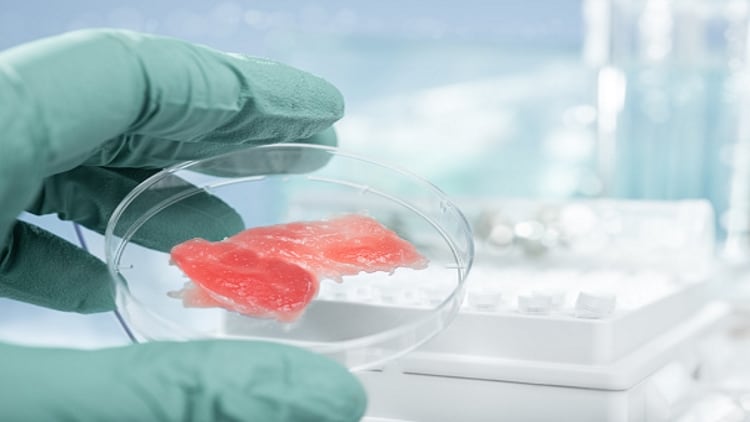The report, Don’t have a cow man, suggested that growing global meat consumption has led to “intensive demands” on land, and that mainstream use of lab grown meat could reduce greenhouse gas emissions.
It said: “With demand for meat and milk expected to increase globally 70% by the year 2050 lab grown meat generated by cleaner energy could allow more people to access high quality meat at a sustainably lower environmental cost.”
Panda meat potential
The report addressed the cost of producing lab grown meat and the fact that it could be some time before it’s accessible to everyone, even suggesting alternative meats as a way to prove the effectiveness of the method.
“While growing meat in a lab has been difficult to master, and costly to engineer, the price has been falling. Just five years ago the cost of a burger made with meat grown in a lab stood at $215,000, but now the price tag has dropped to just £8.
“While commercially competitive prices are still some way off, there is room for meat from exotic and endangered species. Meats grown from animals like the komodo dragon or the giant panda might help prove the concept, increase public awareness, drive down long-term costs and provide funds for future production. All the while, importantly for animal rights and conservation groups, not harming any wild or farmed animals in the process.”
It also warned the Government against following the lead of the US by changing the legal definition of meat to exclude lab grown meat.
Jamie Hollywood, co-author of the report, said: “The direction of technological innovation can be the key to averting many of the major ecological problems currently facing humanity. The herald of cultured meat will lessen the impact of antibiotic resistance, as well as potentially reducing the carbon footprint and levels of pollution caused by the current methods of meat production.
“The policy direction of the government should be to encourage emerging technologies; technologies which seek to provide mass benefit to society. This should be done by removing barriers to their development and introduction. Many innovations which have been impeded by inefficient and short-sighted legislation and state procedure could alleviate problems such as starvation, malnourishment, and climate change.”
Madsen Pirie, President of the Adam Smith Institute, added: “The UK should recognize that cultured meats are a game-changer. For 12,000 years humans have reared animals for meat. In future they will not need to. This will release millions of acres of pasture land for other uses. It will resolve all of the ethical issues involved in the rearing and slaughter of animals. It will give the world access to a low cost, high protein diet, and the UK could become a world leader in this multi-billion-pound new industry.”

